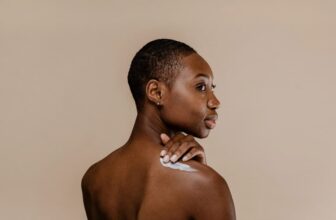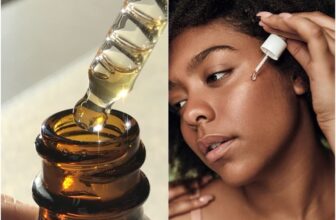6 Ways To Repair A Damaged Skin, Naturally
Inside each of us, there’s a memory vault full of regrets, and for many, that includes memories of something that didn’t quite end well for our skin, leaving behind signs of damage. Skin damage comes in various forms, whether it’s sun damage, lingering acne scars, or discomfort from harsh treatments. The good news is that, regardless of how your skin gets damaged, you can try simple and natural solutions at home to kickstart your skin’s repair process.
This piece of content aims to guide you on how to naturally rejuvenate damaged skin, promote your skin’s healing process, address issues like sun damage and acne scars, and restore a healthy, radiant complexion.
What Causes a Damaged Skin Barrier?
Our skin can face various challenges, leading to damage for different reasons. Some damage is caused by our actions, while others are things we can’t control. Common reasons for skin damage include exposure to the sun, harsh skincare treatments, picking blemishes, and blocked pores. Additionally, environmental factors like heat, low humidity, wind, and prolonged exposure to ocean or chlorine pool water can negatively affect our skin.
Signs of Damaged Skin
When the skin barrier is damaged, it shows physical signs such as dryness, flakiness, and an uneven texture. Other indications of skin damage include:
- Red, itchy, blotchy, and tight skin
- Hyperpigmentation, age spots, sun spots, and uneven skin tone
- Imbalances like excessive oil production
- Wrinkles, fine lines, and dull-looking skin
- Acne scarring, clogged pores, and enlarged pores
Recognizing these signs is crucial to understanding the impact on your skin and taking steps to address and repair the damage.
 Photo credit: instagram.com/cosmetology_sa
Photo credit: instagram.com/cosmetology_sa 6 Easy Steps to Repair Damaged Skin Naturally
Drink lots of water to remain hydrated
In beauty routines, moisturizing products play a crucial role but don’t forget the power of staying hydrated from the inside out. Consuming a minimum of 8 glasses of water daily is a fantastic strategy to ensure your skin stays moisturized and well-nourished.
Here’s why water is your skin’s best friend:
- It revitalizes and maintains the moisture levels in your skin cells, acting as a natural hydrator.
- When you don’t drink enough water, it can lead to skin dryness, irritation, and those pesky skin patches we’d rather avoid.
- Dehydration and skin dryness are major culprits for premature skin aging, making it even more essential to keep your skin well-moisturized. So, sip on that water to keep your skin happy and healthy!
Use Aloe Vera on your face
Aloe vera, known for its skin-healing properties since ancient times, is a powerhouse of vitamins A, C, E, and B12. These vitamins play a crucial role in repairing and maintaining healthy skin. Additionally, aloe vera gel is rich in minerals, amino acids, and antioxidants, protecting against environmental stressors. Its unique combination of mucopolysaccharides, amino acids, zinc, and water makes it effective in preventing skin ulcers.
When it comes to wound healing, aloe vera surpasses many alternative treatments in both quality and speed. The NCBI suggests using aloe vera as a complementary treatment to enhance wound healing, given its effectiveness and minimal adverse effects.
Applying aloe vera gel to injured skin before your evening oil-based serum or moisturizer can take advantage of the skin’s repair mode during the night.
Here are some of the skin benefits of aloe vera gel:
- Anti-inflammatory effects for relieving pain, swelling, and soreness from wounds or injuries.
- Promotion of collagen creation and release, enhancing skin suppleness.
- It is an effective treatment for fungal and bacterial infections due to its antibacterial properties.
- Antioxidants aid in healing sun damage, slowing down skin aging, and providing a cooling effect on rashes or sunburns.
- 98% water content for moisturizing, soothing, and hydrating the skin.
- Softening and smoothing properties, prevent the skin from becoming hard and leathery.
- Acceleration of wound healing, reduction of scarring, and shortened healing time for first- and second-degree burns.
 Photo credit: instagram.com/sanaabeautyltd
Photo credit: instagram.com/sanaabeautyltd Apply coconut oil on your skin
For generations, coconut oil has been a staple in African households, especially when it comes to addressing skin concerns. This versatile oil is a fantastic solution for repairing and healing damaged skin.
Here’s why coconut oil works wonders:
- Packed with fatty acids, it’s a go-to for moisturizing the skin, ensuring it stays well-hydrated.
- The soothing properties of coconut oil make it an excellent choice for calming inflamed and damaged skin.
- It doesn’t stop there; coconut oil is also effective in treating aging skin and tackling sagging, wrinkles, stretch marks, and scars with its nourishing goodness.
Use sunscreen and exfoliate daily
Sunscreen acts like a shield for your skin, keeping harmful UV rays at bay. These rays, if exposed for too long, can harm your skin cells and tissues, making you more susceptible to aging. One reason is that UV rays can mess with your skin’s collagen production. Plus, sunscreen helps fend off dryness, sunburn, sagging, and various skin issues.
On the other hand, when you exfoliate, you’re essentially giving your skin a good clean-up, getting rid of dead skin cells, and unclogging pores. This process also plays a role in collagen production, keeping wrinkles at bay and enhancing your skin’s flexibility. Moreover, it supports the growth of healthy skin. It’s a top pick for dealing with acne scars, inflammation, and dry, cracked skin.
Eat Vitamin C, Zinc and protein-rich food
Different foods offer different perks for our bodies. For instance, a diet packed with vitamin C, zinc, and protein not only brings overall health benefits but also works wonders for our skin.
Here’s how these nutrients help your skin:
- Protein plays a vital role in creating collagen, a key player in preventing premature aging and repairing damaged skin. It also rejuvenates tired skin by making it firmer.
- Vitamin C keeps your body hydrated, boosts skin cell growth, and enhances blood circulation to the outer skin layers and cells. It’s crucial for maintaining skin flexibility by boosting collagen production. Additionally, it’s beneficial for managing acne, reducing scarring, and unclogging pores.
- Zinc also contributes to collagen production, aiding in the repair of skin tissues and preventing premature aging. Acting as an antioxidant, zinc combats free radicals, defends against UV radiation, and helps prevent skin discoloration.
 Photo credit: Instagram.com/glo_haus
Photo credit: Instagram.com/glo_haus Use Antioxidant-containing Skincare Products
Consuming foods packed with antioxidants has plenty of benefits for our health. But did you know that using skincare products rich in antioxidants can also work wonders for our skin? Antioxidants, like vitamins C and E, are top picks for their well-researched health perks.
Here’s how antioxidants in skincare help:
- They step in to tackle age-related signs by either reducing or maintaining the level of harmful oxidants, even those without free radical activity.
- Antioxidants dial down the skin’s inflammatory response caused by the sun, cutting down on sunburn and offering better defense against sun damage and premature aging caused by sun exposure.
- Certain antioxidants, like vitamin C, kickstart collagen production, helping the skin repair itself, look younger, and shine with radiance.
- Exposure to the sun and free radicals prompts our skin to produce melanin, leading to dark patches and an uneven skin tone. Antioxidants step in by lightening skin tone and preventing abnormal pigmentation, lessening the damage caused by UV rays.
You May Also Like:
The Beauty Goals No One is Talking About in 2026
January 28, 202610 Best Eyeshadow Palettes For Everyday Glam
January 28, 2026The Best Body Firming Lotions For Smooth, Plump Skin
January 22, 2026Sodium Ascorbyl Phosphate For Skin: What You Need to Know
January 19, 202625 Best Skincare Products For Men
January 15, 2026Your Ultimate Guide to Achieving a Natural No-Makeup Makeup Look
December 30, 20257 Best Makeup Removers to Keep Your Holiday Glam Fresh
December 23, 2025Brow Grooming: An In-Depth Guide to Maintaining Healthy Brows
December 18, 2025Best Anti-Aging Products: Your Guide to Younger-Looking Skin
November 21, 2025Meghan Markle Goes Makeup Free On The Cover Harper's Bazaar magazine
November 20, 2025The Best Foundation for Natural Skin
November 13, 2025How to Remove Makeup Without Damaging Your Skin
November 12, 2025Esther Ejoh is a Fashion Editor at Fashion Police Nigeria, where she writes all things fashion, beauty, and celebrity style, with a sharp eye and an even sharper pen. She’s the girl who’ll break down a Met Gala look one minute, rave about a Nigerian beauty brand the next, and still find time to binge a movie or get lost in a novel. Style, storytelling, and self-care? That’s her holy trinity.






